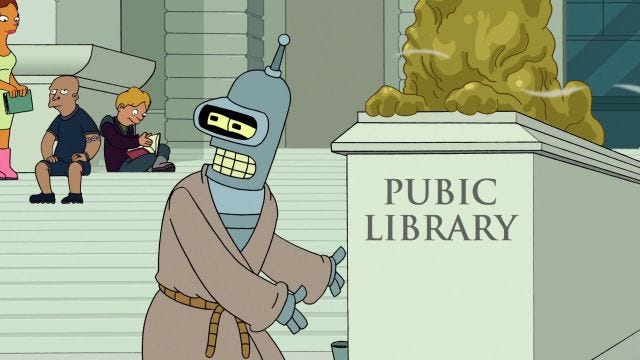So What, Who Cares (vol 3, issue 3) What do student loans have to do with auto sales?
Hello!
While I wrote the newsletter on Monday/Wednesday/Friday nights this week, I'm going to try and shift this back so you're actually getting this on Monday/Wednesday/Friday mornings. We'll see how it goes, yes? In any event -- we all survived this week! Hooray for us.

Nobody can decide whether or not millennials like cars. Some studies show that car ownership is down among young people. The number-one reason cited is "economic factors," i.e. a generation that's burdened with five-figure student loan debt (on average) does not have the means to add a car payment to their budget. In auto sales, the only group where car sales rose in the last decade were the Baby Boomers.
(It's worth noting that most of the coverage revolves around hand-wringing about the decline of car culture and not the rise of launching young people into debt in their teens.)
Yet this so-called "decline" tends to overlook the fact that among adults under age 25, fully two-thirds of them still own a car. And that number goes up in rural America -- people there prefer to drive. It makes sense.
What doesn't make sense is how the auto industry has decided to goose sales among the already-strapped young adult audience: by rolling out pricey cars. The average cost for a new car is now $35,000 -- up 35% since 2000, while median income has dropped by 2.4% and the average student loan debt rose 78% from $16,928 in 2000 to $30,100 in 2016.

So what? The U.S. auto industry had already been facing the prospect of having already peaked, and the play of rolling out more pricey cars -- this, when the hard-core customer group of rural young adults driving are more likely to be making under $20,000 annually -- to woo a cash-strapped customer base is ... well, it's a unique approach. Watch the auto industry this year to see who buys cars.
Who cares? Anyone who has a stake in the automotive industry. And people who make a living telling reporters what it is the millennials do.
Your pop culture recommendation of the day: I've been romping through the titles of the Northern California Digital Library, and thus have been marveling at what's available and to whom it might possibly appeal. This reminded me of a great New Yorker article last summer, "Weeding the Worst Library Books," about the sometimes-controversial practice of shuffling books like The Truth About Fonzie off the shelves so more contemporary titles might have room.
Why should we cheer for the deaccessioning of books in libraries? As the article explains:

When [Holly] Hibner and [Mary] Kelly worked together, they had a goldfish they named Ranga, after the Indian scholar S. R. Ranganathan, whose “Five Principles of Library Science,” first proposed in 1931, are still frequently cited today. “No. 5 is, the library is a growing organism,” Hibner said. This conception of libraries—especially public libraries, where universal access is more important than permanent preservation—explains the metaphor of weeding.
The key to the blog and the approach at large is the use of human judgment to decide which books stay and which ones go. You may recall the story of a few weeks ago about the Lake County, Florida, librarians who set up a dummy account named "Chuck Finley" and had ol' Charles check out books in order to keep them in circulation. They did so because:
East Lake County uses a software to measure titles’ popularity based on how often they circulate. But trouble arises because the data-driven outcomes often override the opinions and judgements of professional librarians who select and recommend books, have a historical understanding of the collection and work with patrons every day.
As Cory Doctorow reminds readers in BoingBoing, in this case, the non-Finley'd circulation data was making the library worse: instead of building a collection based on the expertise and judgment of people who have studied how to build and maintain libraries, the software builds out a library collection based solely on a book's popularity. Any thrift shop employee wondering what to do with all their surplus copies of Fifty Shades of Grey can tell you that a book's short-term popularity may not always be the fertilizer any library needs to grow.
*
All right! Footer time! If you liked this newsletter, please pass it along to your pals. They can then subscribe here! You can leave me comments and pointers via Twitter (@lschmeiser). And thank you, always, for reading.

